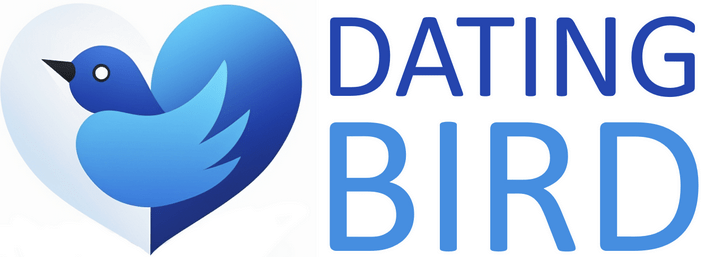Navigating the world of online dating can be a thrilling adventure for seniors, but it's not without its pitfalls. Recognizing and reporting scams in senior online dating is a critical skill to master. Just like a seasoned sailor spotting a storm brewing on the horizon, you too can learn to identify and deal with these red flags. Ready to set sail on safer waters? Let's dive in!


Quick Overview (TL;DR)
- Senior online dating is increasingly popular, but it's crucial to be aware of common scams such as romance scams, advanced fee scams, and catfishing.
- Red flags to watch for include requests for money, too-good-to-be-true stories, rapid escalation of the relationship, and inconsistent details in their profile or conversations.
- If you spot a potential scam, it's important to report it to the dating site, law enforcement, and loved ones to protect both yourself and others.
- Protecting yourself involves maintaining privacy, practicing safe communication, and trusting your instincts when something feels off.
- Despite the risks, senior online dating can be a safe and rewarding experience when approached with vigilance and awareness.
Table of contents

Understanding the Landscape of Senior Online Dating
Online dating, once a fringe interest, has now become a mainstream activity, and seniors are no exception. It's a brave new world out there, folks! The popularity of online dating among seniors is on the rise, and it's not hard to see why. It offers an opportunity to meet new people, reconnect with old flames, or even find love late in life. But, as with any new territory, it brings with it a unique set of challenges and misconceptions.
For seniors, navigating the online dating landscape can be somewhat tricky. Can you believe that some folks think seniors don't know how to use a computer? I know, right? It's 2022, not 1922! But the truth is, seniors are just as capable as anyone else when it comes to technology. And while technology can be a little daunting at first, it's like riding a bike. Once you get the hang of it, it's a breeze!
The other challenge, of course, is safety. Online dating can be a bit like the Wild West – exciting, but full of potential pitfalls. Recognizing and reporting scams in senior online dating is crucial. It's like being in a Western movie: you have to keep your eyes open for bandits.
And let's not forget the misconceptions. Some people believe that online dating is only for the young and the restless. But hey, who says seniors can't have fun? Age is just a number, after all.
"Online dating is not a young person's game. It's a game for anyone with a heart and a desire to connect."
So, understanding the landscape of senior online dating is crucial. It's not just about swiping right or left. It's about being aware, staying safe, and debunking the misconceptions.
As we dive into the world of online dating red flags, remember, it's all about awareness. So buckle up, because next, we're going to explore how to recognize scams in senior online dating.
Recognizing Scams in Senior Online Dating: The Red Flags
Ah, the digital age! It's a blessing, right? It's brought us closer, made the world smaller, and yes, even given us the chance to find love online. But, as with any rose, there are thorns. In this case, the thorns are the scams lurking in the world of senior online dating. So, let's talk about recognizing and reporting scams in senior online dating. Ready? Let's roll!
First things first, we need to understand what we're up against. The most common scams in senior online dating revolve around money. Sounds pretty straightforward, right? But here's the catch: these scams are often woven into intricate stories that are designed to tug at your heartstrings. The scammer might pretend to be in a dire financial situation or claim to have a lucrative business opportunity. The goal? To convince you to part with your hard-earned money.
So, what are the red flags to look out for? Fast declarations of love, requests for money, and excuses to avoid meeting in person are all signs of a potential scam. And if they're hesitant to video call? That's another big red flag.
Think these scams are just a myth? Well, think again! Real people fall victim to these scams every day. Take the story of a Canadian woman who lost over $40,000 to a scammer claiming to be a successful businessman stranded overseas. Heartbreaking, isn't it?
But don't worry, there's light at the end of the tunnel. When you spot a red flag, don't panic! First, stop communicating with the person. Then, report the incident to the dating site and local law enforcement. Remember, it's better to be safe than sorry!
"Knowledge is power. Recognizing and reporting scams in senior online dating is our best defense against these digital predators."
Alright folks, that's all for now. Next up, we'll delve deeper into the world of romance scams. Stay vigilant, and remember, love is worth the wait, but never worth a scam.
Romance Scams
Ah, romance. The butterflies in your stomach, the stolen glances, the late-night messages… the sudden requests for money? Wait a minute, that's not right! Welcome to the world of online dating romance scams.
So, what exactly is a romance scam? Well, imagine a charming, seemingly perfect partner you've met online. They're attentive, they're interested in your life, and they're always ready for a chat. It's like a dream come true, right? But then, they start asking for money. Maybe it's for a plane ticket to visit you, or a sudden medical emergency, or even to help them out of a financial bind. They're so convincing, so desperate, you might even consider helping them out. Stop right there! You, my friend, might be dealing with a romance scam.
But how can you spot these scoundrels? Here are some red flags. They're quick to profess love, their story doesn't add up, they're always facing some crisis, or they're eager to move the conversation off the dating site. They might even send gifts to earn your trust. Sounds familiar?
So, how can you protect yourself from these heartbreakers? First, slow down. Love takes time, and anyone rushing it might have ulterior motives. Second, do your homework. Research your online partner. Check their photos and stories for inconsistencies. Thirdly, keep your financial information private. No matter how compelling their story is, never send money or gifts to someone you've never met in person.
Remember, recognizing and reporting scams in senior online dating is essential for your safety. If the person you're talking to sounds too good to be true, they probably are. Stay cautious, stay smart, and keep your heart (and wallet) safe.
Next up, we'll dive into the murky depths of advanced fee scams. They're a bit different from romance scams, but equally as dangerous. Stay tuned!
Advanced Fee Scams
Alright, let's delve into the world of Advanced Fee Scams, a rather sinister member of the online scam family. Now, you might be wondering, what's this all about? Well, buckle up, we're about to embark on a journey through the dark alleyways of the internet.
Advanced Fee Scams, also known as "419 scams" or "Nigerian Prince scams", are a type of fraud where the scammer convinces their victim to pay a fee in advance for a service or a reward that never materializes. Imagine being told you've won a lottery you never entered or being offered an investment opportunity that promises sky-high returns. Sounds too good to be true, doesn't it? That's because it is!
The red flags for these scams are often glaringly obvious. If your newfound online friend suddenly presents an irresistible offer that requires upfront payment, hold your horses! A legitimate deal or opportunity will never ask for payment in advance. Also, be wary of anyone who seems to be rushing you into making a decision. Scammers often use fear tactics or a sense of urgency to push you into acting without thinking.
So, how do you protect yourself from these online predators? The golden rule is: if it sounds too good to be true, it probably is. Always do your homework before parting with your hard-earned money. Look for reviews, check for authenticity, and most importantly, trust your instincts!
"Remember, in the world of senior online dating, your best defense is staying informed and vigilant."
Now, let's not get too comfortable. Our journey into the dark world of online scams is far from over. Next up, we're going to take a look at Catfishing scams, a sinister ploy that preys on your emotions. But don't worry, with the right knowledge, you'll be spotting and reporting scams in senior online dating like a pro! Let's keep going, shall we?
Catfishing Scams
Ah, the infamous catfishing scam. If you've ever watched MTV, you might be familiar with this one. Catfishing is like fishing, but instead of catching a delicious salmon for dinner, you might hook a scam artist. Not quite the catch of the day, right?
Here's how it works: a scammer creates a fake online profile, usually on a dating site, pretending to be someone they're not. They might use a stolen photo, a fictional name, and create an entire backstory that would put a soap opera to shame. Their motive? To lure unsuspecting individuals into an emotional or romantic relationship, only to exploit them later.
But how can you spot a catfish? Well, there are several red flags to look out for. Does your online Romeo or Juliet refuse to meet in person or even video chat? Are their messages full of spelling and grammar mistakes, or do they seem too good to be true? Do they profess their love too quickly, or are they always in some kind of dramatic crisis? If you answered yes to any of these, you might be dealing with a catfish.
So, how can you protect yourself from these slippery scammers? Well, first, trust your instincts. If something feels off, it probably is. Second, do a little detective work. Use reverse image search to check if their profile picture is stolen or fake. And last but not least, never send money to someone you've only met online.
Remember, folks, recognizing and reporting scams in senior online dating is key to keeping your heart and wallet safe.
On that note, let's move on to our next topic, "Reporting Scams in Senior Online Dating: A Step by Step Guide". It might not be as exciting as a prime-time drama, but it's crucial information to have in your toolkit. After all, knowledge is power, right?

Reporting Scams in Senior Online Dating: Step by Step Guide
Alright, my friend, let's dive into the nitty-gritty: how to report scams in senior online dating. We've talked about recognizing the red flags, but what do you do when you spot one? Don't worry, we've got your back.
First things first: when should you report a scam? Simple answer: as soon as you suspect it. Even if you're not 100% sure, it's better to be safe than sorry. If that charming person you've been chatting with starts asking for money or personal information, it's time to hit the 'report' button.
Now, how to report a scam. Most dating sites have a reporting feature built in. Look for a 'report' or 'flag' icon on the person's profile, and follow the prompts. If you can't find it, don't panic. A quick Google search of "how to report a user on [dating site name]" should do the trick.
The next step is crucial: what information to include in your report. The more details, the better. Include the user's profile name, any communication you've had with them, and why you believe it's a scam. Screenshots are your best friend here. They're like the breadcrumbs that lead the dating site to the Big Bad Wolf.
Finally, what happens after reporting? Well, the dating site will investigate your report. If they find that the user is indeed up to no good, they'll remove the profile and, in some cases, report them to the authorities.
Remember, you're not alone in this. Reporting scams in senior online dating is a community effort. By reporting, you're not just protecting yourself but also helping others dodge a bullet.
Now that you're armed with this knowledge, let's move on to specifics. What happens when you report to the dating site? Stay with me as we dissect this further.
Reporting to the Dating Site
So, you've spotted a red flag and you're ready to take action. Good on you! But how exactly do you go about reporting to the dating site? Well, let's break it down.
First things first, you'll want to gather all relevant information. This includes the user's profile name, any suspicious messages, and details of why you believe it's a scam. Some dating sites even let you take screenshots - if that's the case, snap away! The more evidence you have, the better.
Now, it's time to report. Most dating sites have a 'report' button right on the user's profile, or within the messaging system. If you can't find it, don't panic! Check the site's FAQ or support page, or do a quick Google search. The process may vary slightly from site to site, but the common goal is to make it as easy as possible for you to report scams.
But what can you expect after reporting? Well, most dating sites take these reports very seriously. They'll typically review the report, investigate the account in question, and if necessary, take action which could include banning the user from the site. However, due to privacy policies, they might not be able to tell you the outcome of their investigation.
Remember, by reporting scams in senior online dating, you're doing a public service. You're helping to protect yourself and others in the online dating community. So, don't hesitate to hit that report button if something seems off.
Now, what if the scam goes beyond the dating site? That's when it's time to involve law enforcement. But we'll get to that in just a moment…
Reporting to Law Enforcement
Alright, let's dive right into the nitty-gritty of reporting online dating scams to our trusty law enforcement officers. Because let's face it, when love turns sour, it's time to bring in the pros.
First things first, when should you report a scam to law enforcement? Well, if you suspect that you or a loved one is being targeted by an online dating scam, it's time to take action. And by action, we mean dialing up your local law enforcement agency, pronto.
Now, you might be wondering, "What exactly do I report?" Well, you're going to want to include as much information as possible. This includes any messages, profile details, and even those sweet nothings that seemed so genuine at the time. It's all evidence that can help the authorities nab these digital Casanovas.
But here's the kicker: reporting to law enforcement can feel a bit like shouting into the void. You may not get an immediate response, and it can feel like your report is simply disappearing into a black hole of bureaucracy. But don't let that deter you! Your report is vital in helping law enforcement build a case against these scammers.
Remember, it's a marathon, not a sprint. These things take time, but rest assured, your report is being taken seriously. As the saying goes, "The wheels of justice turn slowly, but grind exceedingly fine."
So, what can you expect after reporting? Well, you might not get a personal phone call from the chief of police, but your report will be taken into account as part of ongoing investigations into these scams. And who knows, your report might just be the missing piece they need to put the scammer behind bars.
"Reporting scams is not just about seeking justice for yourself. It's about protecting others and helping law enforcement stop these digital predators in their tracks."
Now, you've done your part with law enforcement, but don't stop there. It's time to bring your inner circle into the loop. Yes, it's time to talk about reporting to friends and family. But let's save that for the next chapter, shall we? So, grab a cup of tea, take a deep breath, and let's dive into the world of sharing and caring.
Reporting to Friends and Family
Ah, the joys of senior online dating! A world full of potential companionship, romance, and, unfortunately, the occasional scammer. Recognizing and reporting scams in senior online dating is crucial, and it's not a journey you need to embark upon alone.
Now, let's talk about bringing your loved ones into the picture. Yes, we're talking about reporting to friends and family. You might be thinking, "Why involve my family in my online dating life?" Well, dear reader, your family and friends are your primary support network. They care about you and want to ensure your safety.
Procedure
So, you've spotted a red flag. Now what? First, don't panic. Gather your thoughts, take a screenshot or note down critical information, and then reach out to a trusted friend or family member.
Talk to them about your concerns, show them the evidence, and ask for their perspective. Sometimes, an outsider's view can provide a fresh perspective, helping you see things you might have missed.
Remember, it's not about seeking validation but rather about protecting yourself. As the old saying goes, two heads are better than one, especially when it comes to spotting and reporting scams in senior online dating.
Importance
The importance of reporting to friends and family can't be overstated. They offer emotional support, practical advice, and can assist in further reporting procedures if needed.
After all, who better to have by your side than those who have your best interests at heart? Your loved ones can provide a comforting shoulder to lean on and a sounding board for your thoughts and concerns.
What to Expect
So, you’ve reported to your loved ones. What's next? Expect them to be concerned, but also supportive. They might ask probing questions, not to judge you, but to better understand the situation.
They may also advise you to report the issue to the dating site and, in some cases, to law enforcement. Remember, their goal is the same as yours: to ensure your safety in the uncertain world of senior online dating.
"When it comes to recognizing and reporting scams in senior online dating, friends and family can be your greatest allies."
So, you've successfully reported the red flags to your loved ones. What's next on the agenda? Well, it's time to talk about protecting yourself from scams in senior online dating. Let's keep the momentum going, shall we?
Protecting Yourself from Scams in Senior Online Dating
Ah, the world of online dating, it's a thrilling ride, isn't it? It's like sailing into uncharted waters, full of potential treasures and, unfortunately, some lurking sharks. We've talked about recognizing and reporting scams in senior online dating, but let's switch gears a bit and focus on how to keep those pesky pirates at bay.
General safety tips are your first line of defense. Think of them as your trusty compass guiding you through the vast sea of online dating. Always keep your personal and financial information under lock and key. Would you give your house keys to a stranger? I didn't think so.
The importance of privacy cannot be overstated. It's like your personal lifeboat in this metaphorical ocean. Be cautious about sharing personal details, especially if your new online friend seems overly curious. Remember, curiosity didn't just kill the cat, it also made the cat susceptible to identity theft.
Safe communication practices are another crucial tool in your safety toolkit. It's like using a code language only you and your trusted allies understand. Avoid using personal email or phone for initial communications. Stick to the messaging services provided by the dating site. They're not perfect, but they do provide a safety net.
Lastly, but arguably most importantly, is trusting your instincts. If something smells fishy, it probably is. Your gut feeling is like a seasoned sea captain, it can often sense a storm before it hits. If a person or situation doesn't feel right, it's okay to walk away. After all, there are plenty of other fish in the sea, right?
"In the world of senior online dating, your instincts are your best compass. If something doesn't feel right, it probably isn't."
Stay vigilant and keep these tips in mind as you navigate the waters of online dating. It's a journey filled with potential, but like any journey, it pays to be prepared. So, grab your metaphorical lifejacket and set sail with confidence. Up next? We'll wrap up with our final thoughts on staying safe in the world of senior online dating. Safe travels, my friends!
Conclusion: Staying Safe in the World of Senior Online Dating
In conclusion, seniors venturing into the online dating world must be vigilant about potential red flags. Be aware of people who are too good to be true, exhibit signs of financial scams, or display aggressive behaviour. Report any suspicious activities promptly to the dating site or app administrators, and if necessary, law enforcement. The key to a safe online dating experience is to trust your instincts, maintain your privacy, and never send money or personal information to someone you haven't met in person. Remember, genuine love never rushes you or makes you feel uncomfortable.

FAQ
Question: What are some common red flags to watch out for in senior online dating?
Question: How can I protect myself from scams in senior online dating?
Question: When should I report a suspected scam in senior online dating?
Question: How do I report a scam in senior online dating?
Question: What are some common misconceptions about senior online dating?
Question: What happens after I report a scam in senior online dating?
Question: Why is it important to report scams in senior online dating?
Question: Are there specific scams that target seniors in online dating?
Related articles
Articles with related questions
Further information on terms of this article
Written by:
 Ethan
Ethan is an expert on dating apps outside of the mainstream.
Ethan has been online since 1997. Back then, the search for a partner was very different in various chat groups. Since then, online dating has played an important role for Hendrik.Ethan knows all the dating apps and dating portals. He is also very interested in topics beyond the classic search for a partner. Hendrik is a passionate relationship coach and is always able to give tips for a happy relationship.
Ethan
Ethan is an expert on dating apps outside of the mainstream.
Ethan has been online since 1997. Back then, the search for a partner was very different in various chat groups. Since then, online dating has played an important role for Hendrik.Ethan knows all the dating apps and dating portals. He is also very interested in topics beyond the classic search for a partner. Hendrik is a passionate relationship coach and is always able to give tips for a happy relationship.
